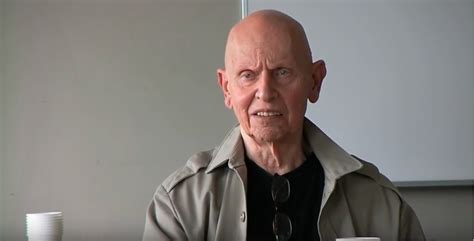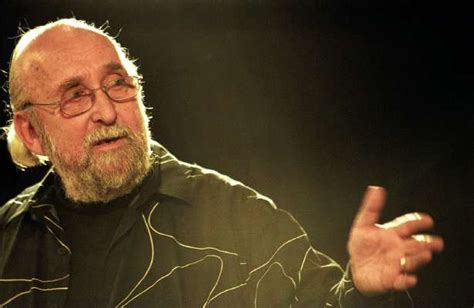A Quote by Herbert Read
The great modern heresy in poetry is to confuse the use we make of words in a poem with modalities of speech...For true poetry is never speech but always a song.
Related Quotes
The secret of understanding poetry is to hear poetry's words as what they are: the full self's most intimate speech, half waking, half dream. You listen to a poem as you might listen to someone you love who tells you their truest day. Their words might weep, joke, whirl, leap. What's unspoken in the words will still be heard. It's also the way we listen to music: You don't look for extractable meaning, but to be moved.
When we study Shakespeare on the page, for academic purposes, we may require all kinds of help. Generally, we read him in modern spelling and with modern punctuation, and with notes. But any poetry that is performed - from song lyric to tragic speech - must make its point, as it were, without reference back.
We do have to learn poetry at school. Poetry is interesting to me, particularly Chinese poetry. It's like an ancient form of song. There's five sentences, seven sentences - they're very different from English poetry. Chinese poetry is much more rigorous. You can only use this many words, and they will form some kind of rhythm so people can actually sing it. To me, poetry is quite abstract but also quite beautiful.
That's one of those questions that would just love to have a pat answer. You know, poetry's job is to make us feel good. Poetry exists to allow us to express our innermost feelings. There isn't one role for poetry in society. There are many roles for poetry. I wrote a poem to seduce my wife. I wrote a poem when I asked her to marry me. Poetry got me laid. Poetry got me married.
Poetry is the most direct and simple means of expressing oneself in words: the most primitive nations have poetry, but only quitewell developed civilizations can produce good prose. So don't think of poetry as a perverse and unnatural way of distorting ordinary prose statements: prose is a much less natural way of speaking than poetry is. If you listen to small children, and to the amount of chanting and singsong in their speech, you'll see what I mean.
Truly fine poetry must be read aloud. A good poem does not allow itself to be read in a low voice or silently. If we can read it silently, it is not a valid poem: a poem demands pronunciation. Poetry always remembers that it was an oral art before it was a written art. It remembers that it was first song.
As poetry is the highest speech of man, it can not only accept and contain, but in the end express best everything in the world, or in himself, that he discovers. It will absorb and transmute, as it always has done, and glorify, all that we can know. This has always been, and always will be, poetry's office.
I'm saying that the domain of poetry includes both oral & written forms, that poetry goes back to a pre-literate situation & would survive a post-literate situation, that human speech is a near-endless source of poetic forms, that there has always been more oral than written poetry, & that we can no longer pretend to a knowledge of poetry if we deny its oral dimension.





































